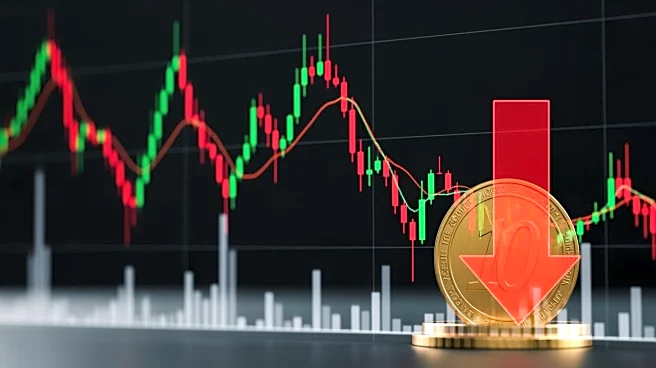What's Happening?
President Donald Trump has expressed reluctance to proceed with a planned summit with Russian President Vladimir Putin, citing concerns over a 'wasted meeting.' The summit, initially intended to address
the ongoing conflict in Ukraine, was scheduled to take place in Budapest. Trump emphasized his desire for a ceasefire agreement, which the Kremlin has rejected, preferring to maintain current battlefield lines. Despite hopes for a resolution, Trump acknowledged the challenges in achieving a quick end to the conflict, which has persisted for over four years. The White House has indicated that no immediate plans for a meeting are in place, following a productive call between Secretary of State Marco Rubio and Russian Foreign Minister Sergei Lavrov.
Why It's Important?
The reluctance to proceed with the summit highlights the complexities in U.S.-Russia relations and the ongoing geopolitical tensions surrounding the Ukraine conflict. A successful summit could potentially lead to a ceasefire, impacting regional stability and international diplomatic efforts. However, the lack of progress underscores the challenges in negotiating peace, affecting U.S. foreign policy and military aid decisions. The situation also influences global perceptions of U.S. leadership and its ability to mediate international conflicts, with potential implications for future diplomatic engagements.
What's Next?
President Trump has indicated that a decision regarding the summit will be made within the next two days. The outcome could influence future diplomatic strategies and military aid to Ukraine. Stakeholders, including Ukraine and Russia, are likely to react based on the U.S. decision, potentially affecting regional dynamics and international relations. The Kremlin's insistence on preparation suggests ongoing negotiations, with potential shifts in diplomatic stances and strategies.









